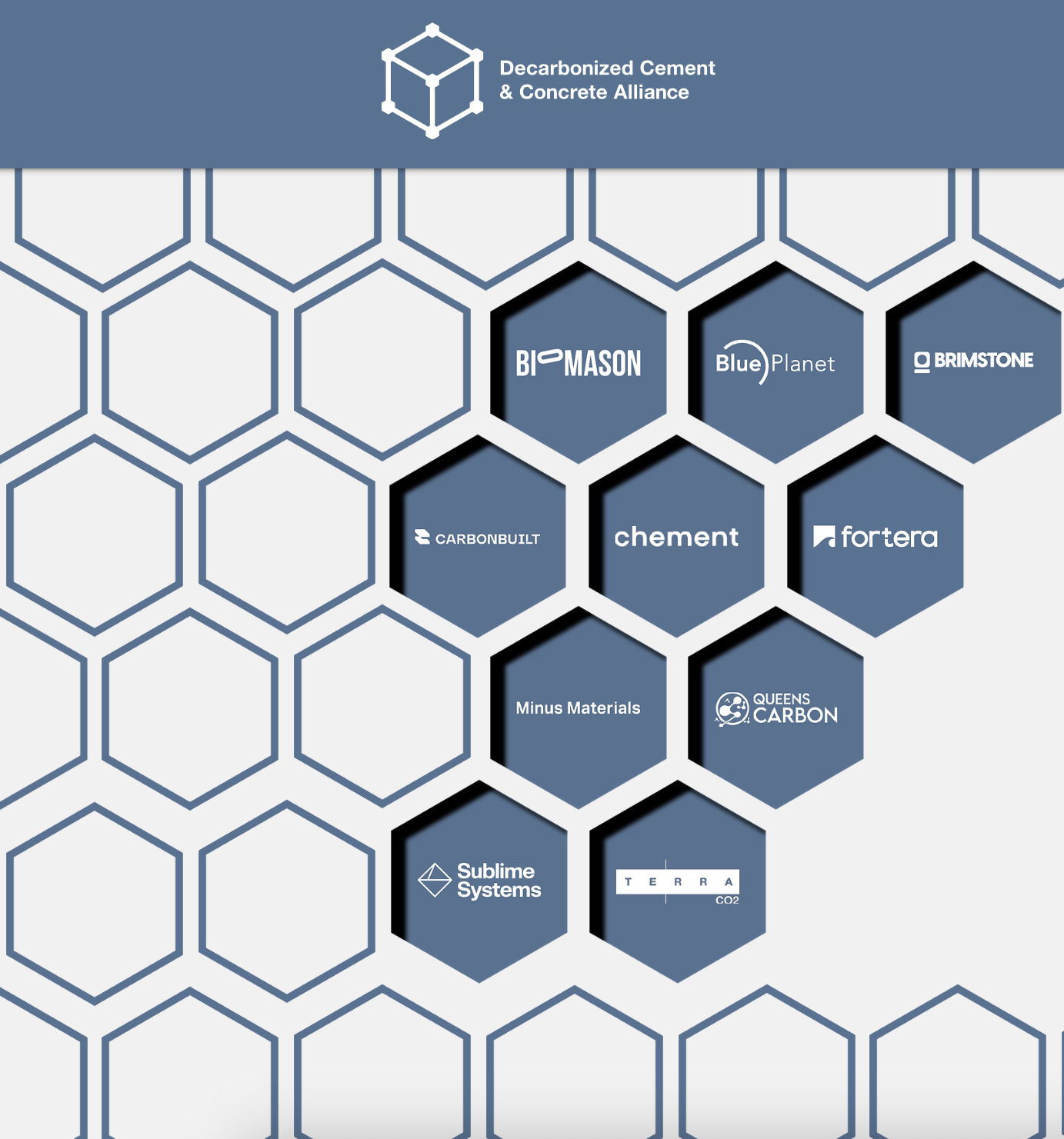Ten companies aiming to lower carbon dioxide emissions tied to cement production and finished concrete have launched a first-of-its-kind, U.S. coalition dedicated to growing awareness around policies that will accelerate the adoption of CO2-wise solutions in public construction. Founding Decarbonized Cement and Concrete Alliance (DC2) members are commercializing technologies that a) offer organic or inorganic alternatives for full or partial portland cement substitution; or, b) mineralize CO2 for use as supplementary cementitious material, aggregate or concrete matrix filler.
“DC2 imagines a cleaner climate through innovation, collaboration, and a shared understanding that every community will benefit from low-carbon technology,” says Connor Woodrich of Fortera, San Jose, Calif.-based CO2 mineralization specialist.

Charter DC2 members alongside Fortera are Biomason, Blue Planet Systems, Brimstone, CarbonBuilt, Chement, Minus Materials, Queens Carbon, Sublime Systems, and Terra CO2. Through promotion and advocacy, they envision new pathways to low-carbon construction materials uptake and meeting future capacity needs by scaling up the industrial base. The DC2 launch times with a critical moment in policy following Department of Energy’s fall 2023 release of “Pathways to Commercial Liftoff: Low-Carbon Cement.” Consistent with the report’s market development findings, DC2 members cite the crucial role of the public sector, where federal, state and municipal agencies account for more than 50 percent of concrete purchases.
Among their top of mind procurement policies are the recently introduced, bipartisan Concrete and Asphalt Innovation Act, which would enable the Department of Transportation to engage in advance purchase commitments of low-carbon concrete products up to three years before they are available—a powerful strategy for accelerating the development and market entry of critical climate solutions. DC2’s additional areas of advocacy and public sector engagement span expanded tax credits, novel standards development, consistent ecolabeling and accounting, and customer demand support. Prior to the coalition’s official launch, DC2 provided industry perspective to the Department of Energy on the area of demand support, with key takeaways incorporated into “Pathways to Commercial Liftoff: Low-Carbon Cement.”
“We recognize we are greater than the sum of our parts as individual companies,” affirms Joe Hicken of Sublime Systems, Somerville, Mass. “Together at DC2 we have a powerful voice in advocating that the public sector uses its outsize buying influence to prioritize clean concrete procurement and bankable contract structures that give private investors the confidence in financing our scaling efforts.”
“DC2’s platform of robust policy, standards, and incentives to scale innovative solutions will not only accelerate deep decarbonization, but also transform the concrete industry from one of the world’s largest CO2 emitters to one of the world’s largest carbon sinks,” adds Sal Brzozowski of CarbonBuilt, Los Angeles.